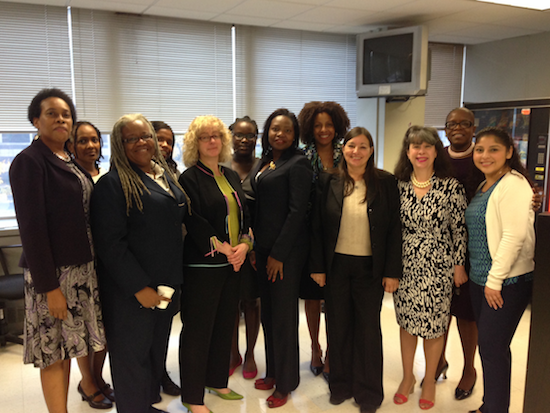Discussion examines domestic violence cases from prosecution, defense, NYPD viewpoints

Screen Shot 2013-10-18 at 2.29.21 PM.png
The Brooklyn Women’s Bar Association, in conjunction with the Kings County Civil Court Gender Fairness Committee, hosted a panel discussion in honor of Domestic Violence Awareness Month.
The discussion surrounded the “Anatomy of a Domestic Violence Case,” and representatives from the New York City Police Department, the Kings County District Attorney’s Office and the Brooklyn Defender’s office discussed how a domestic violence case is handled from beginning to end.
“Domestic violence is prevalent. It is disruptive,” Brooklyn Civil Court Judge Genine Edwards, chair of the Gender Fairness Committee, said in her opening remarks.
